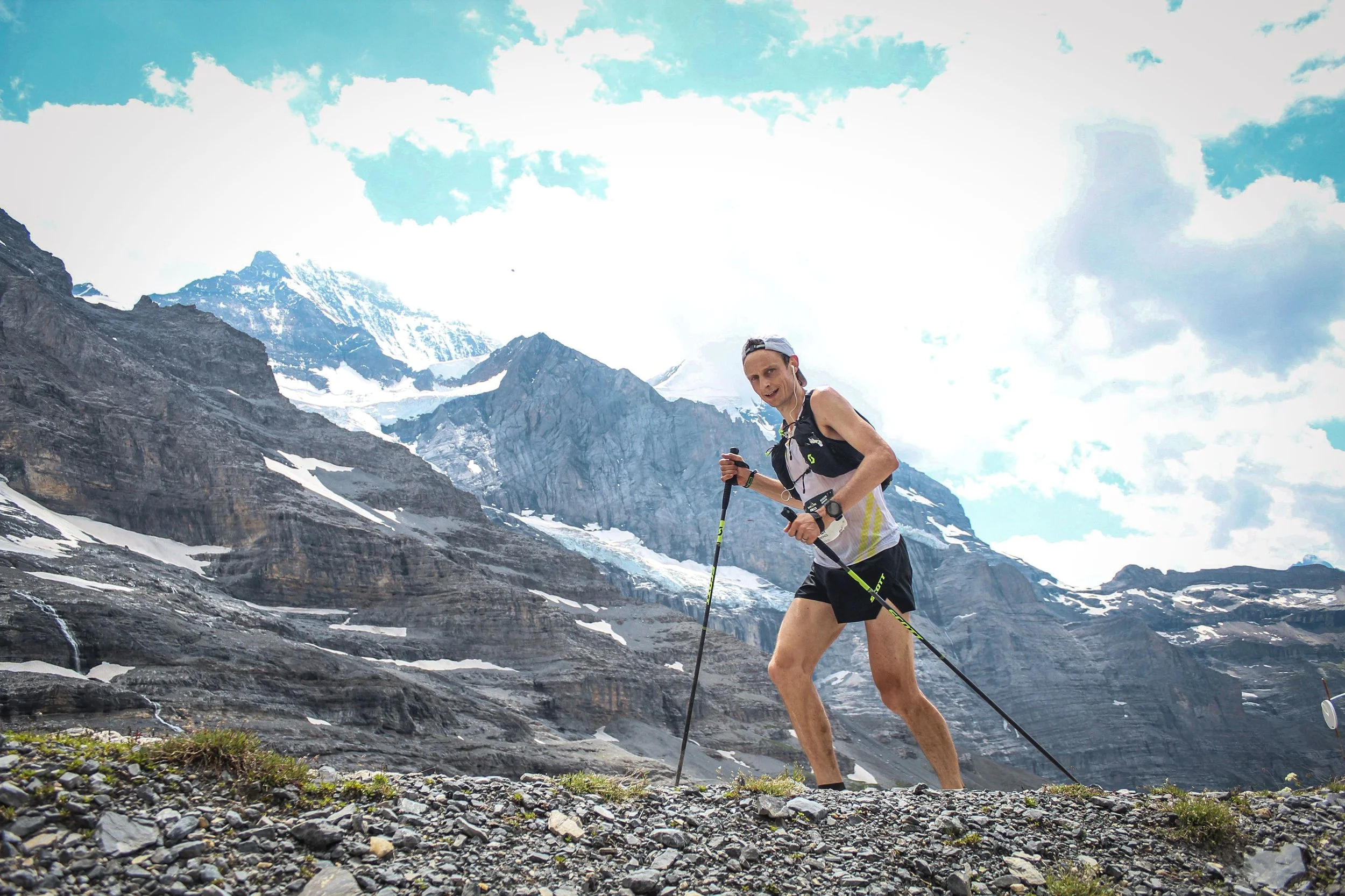Andy Symonds: Why I’ve joined the Fossil Free Declaration
Trail runner Andy Symonds sits down with Cool Down to discuss why he has joined the Fossil Free Declaration.
How is the climate crisis impacting your sport?
Trail running takes place in the natural environment, often high up on mountains. I often run in the Alps, where the climate crisis is particularly evident – average temperatures in many parts already being over 2°C higher than historical records. Running in extreme heat is not only unpleasant, but also very dangerous, and heatwave events hitting major sporting events are increasingly frequent. Some of my favourite sky running races involve running across snow and traversing glaciers – these events become very different when the snow and ice melts away to reveal the bare rock below. Glaciers in the Alps are melting extremely fast.
What drew you to becoming an activist athlete? Was there a specific moment?
I’ve always loved spending time in the outdoors, in natural environments, so it’s the realisation that we’re in the process of destroying these natural environments that makes me want to try and do something about it, something positive. Probably one of the main alarm bell moments for myself was when I calculated my own carbon footprint and realised the efforts that we need to make to calm down the process of climate breakdown and particularly how the consumption of fossil fuels plays such a critical part in the devastation of our climate and planet.
Why do you believe sport should end its relationship with fossil fuels and other high-carbon industries?
Sport should be a positive thing. It should be beneficial for those that play it, those who organise it, and those who watch it. Sport has so much to add to life and to society: it has health benefits for individuals who take part in sport, but it also contributes positively to wider society – it makes people smile and feel good. This is how I see sport, and this is how it should stay. Sport doesn’t need to be associated with and create relationships with things that are detrimental to people, to society, to the planet. It’s so sad to see great sports games, teams, players associated with fossil fuels – as in doing so they are making sport into a liability for the planet rather than an attribute.
What are you hopes for the future of sport in a warmer world? How can sport play a role in stimulating the rapid changes we need to see?
Sport is important for individuals and for society and the future of sport is important, it should be engrained as a sustainable activity. A sustainable version of sport is a version where it is a vector for positive actions and constructive change – including carrying messages of hope and methods for positive evolutions in the way we act and organise ourselves, and first and foremost in saying no to being associated with the burning of fossil fuels.
If you had a message for other athletes in your sport, what would it be?
Think about the impact of your choices and your actions, and in particular the audience that follows you and your sport and how it might be influenced directly and indirectly by the messages you convey and the behaviours and the companies that you’re associating your image and your sport with.

